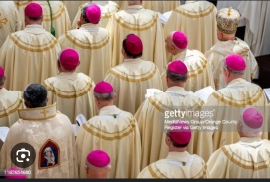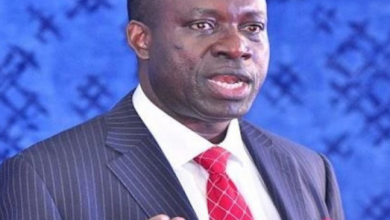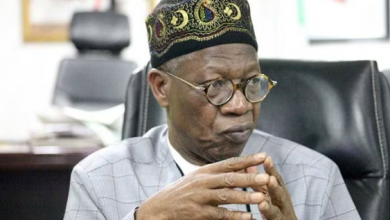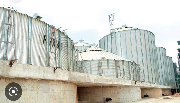
Catholic bishops kick against Military intervention in Niger
- cite Libya as example
CITIZENS COMPASS – Catholic Bishops of West Africa have urged the leadership of the Economic Community of West African States (ECOWAS) to restrain from the use of force to intervene in the Coup D’etat of Niger Republic.
The Bishops, under the auspices of the Reunion of Episcopal Conferences of West Africa (RECOWA) also urged the sub-regional leaders to learn from the 2011 Libyan experience, describing it as a tragic example of the disastrous consequences for people’s lives, dignity, and future.
RECOWA comprises all Catholic cardinals, archbishops, and bishops in West Africa.
They expressed their concern in a two-page letter dated Monday August 7, 2023 and addressed to the President and Heads of States of ECOWAS, and the Transitional Authorities in Niger Republic, calling for dialogue and reconciliation rather than Military intervention.
The letter, signed by the President of RECOWA and Bishop of Agboville, Most Rev. Alexis Touabli Youlo, was sequel to the military coup that displaced the democratically elected government of President Mohammed Bazoum and the resolve of ECOWAS to deploy necessary means including use of force.
Despite a seven-day ultimatum issued to the Military regime led by Gen. Abdourahmane Tchiani to restore Niger’s constitutional government, all other diplomatic measures taken by the ECOWAS, African Union, European Union, and the United Nations to resolve the Niger crisis have yielded no result.
In a two-page letter, RECOWA canvassed pacifism rather than belligerence in the management of this crisis, inviting every actor within and outside the sub-region to show restraint, discernment, and responsibility.
The letter reads in part: “We, the Cardinals, Archbishops, and Bishops of the Reunion of Episcopal Conferences of West Africa, after consultations, are deeply concerned by the sub-regional tension linked to the political situation in Niger. Faced with the events currently unfolding in the sub-region, the lives of the people of West Africa are at stake.
“Keeping as our central vision the integrity of the people and emphasizing respect for human dignity and a high sense of accountability to mankind, history, and God the Creator, we affirm that nothing can justify the creation or facilitation of an environment that is destructive to our people.”
The letter sternly observed that no individual, national, regional, geo-political, or denominational interest or project should take precedence over the preservation of life, human dignity, and the well being of the future generation in West Africa and beyond.
“We, your pastors, are convinced, and the history of people teaches us that violence does not solve any problem, not even the one that triggered it. We affirm that any military intervention in Niger at this time would contemplate the situation of the people of Niger and the sub-region more than it would provide solutions.
“Terrorism already has a macabre toll of widows, orphans, displaced persons, the hungry, the maimed, and so on. People are not expecting the regional, African, and other institutions to add to this toll,” the Catholic bishops of West Africa observed in their letter to the sub-regional leaders.
In retrospect, the bishops cited the military intervention in Libya by the North Atlantic Treaty Organisation in 2011, describing the military intervention as a tragic example of the disastrous consequences for people’s lives, dignity, and future.
“We cannot remain silent in the face of such situations and must learn lessons to ensure that such events do not happen again, particularly with Niger as a potential epicenter of a similar crisis. As a Bishops’ conference, our mission is intimately linked to the promotion of reconciliation and peace.
“We firmly believe that every human being is called to live in peace and to be a peacemaker in accordance with the teachings of the Bible and those of the holy books of other religious confessions, which exhort us to work for reconciliation and brotherhood between all peoples.
“Peace is a precious gift that we must cultivate and preserve together. It is like a common mat that we must weave together with each person contributing to his or her own thread,” the bishops canvassed measures to deepen and promote peace within the sub-region.
They also challenged men, women, and national, sub-regional, and international organisations to play a positive role in easing tensions and promoting lasting peace, noting that the people of the region “love and accept each other and are constantly seeking to improve their coexistence.







